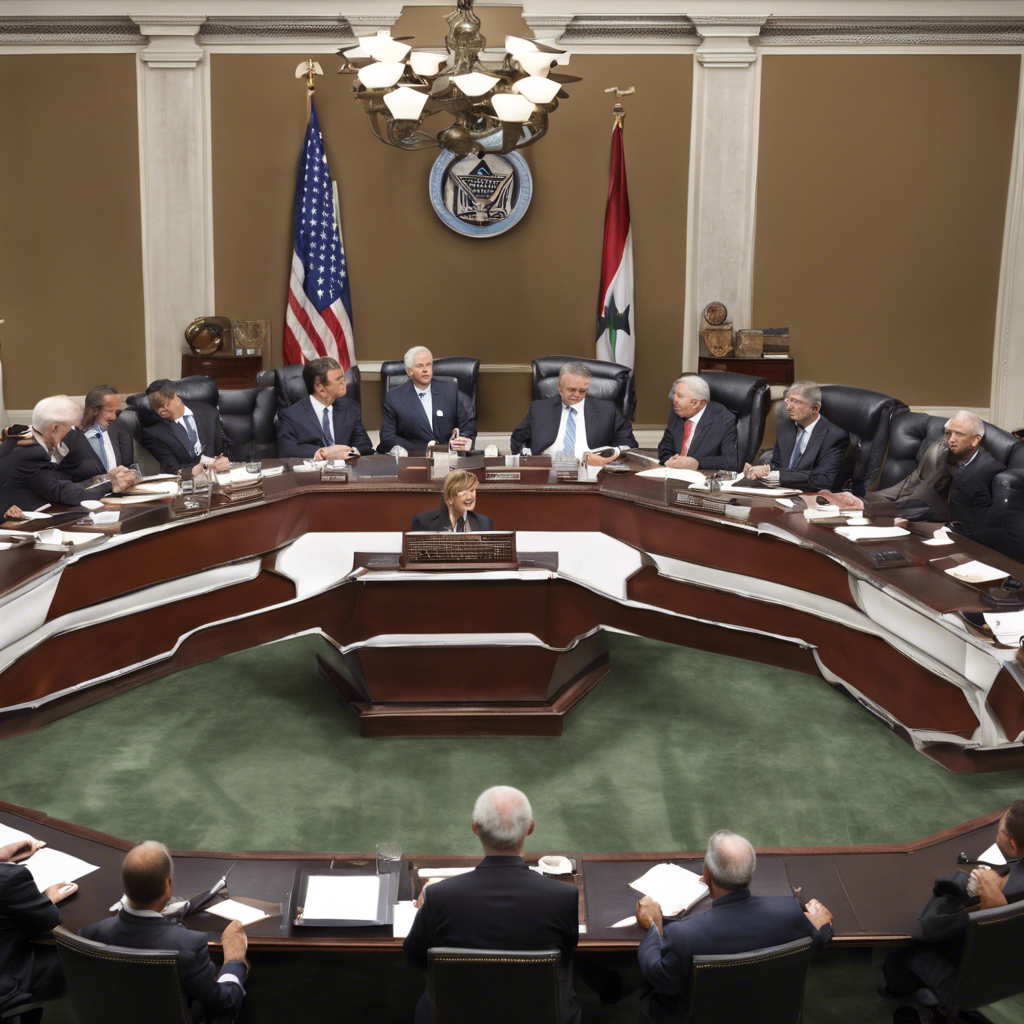Lawmakers Discuss Conditioning US Aid to Israel: A Shift in the Taboo

Democrats raise concerns about Israel’s conduct in its war against Hamas, leading to open discussions on conditioning US aid to Israel.
In a surprising turn of events, lawmakers on Capitol Hill have begun openly discussing the idea of conditioning US aid to Israel, marking a significant shift from the longstanding taboo surrounding the topic. The conversation has been prompted by concerns over Israel’s conduct in its war against Hamas, the far-right policies pursued by the Netanyahu government, and the perceived lack of commitment to a two-state solution. While actual conditions on aid are unlikely to be implemented in the near term, the willingness to engage in this discussion represents a remarkable change in Washington.
1: The History of US Aid to Israel
For decades, Israel has been the largest recipient of US foreign aid, receiving a total of $158 billion in economic and military assistance. While economic aid has decreased over time, military assistance remains the primary form of aid, with the US providing $3.8 billion annually since fiscal year 2019. The aid allows Israel to purchase US military equipment, including the renowned “Iron Dome” missile defense system.
2: What Does it Mean to ‘Condition’ Aid?
The concept of conditioning aid refers to the practice of imposing restrictions or demands on the flow of aid until certain criteria are met. Proponents argue that existing US laws, such as the Leahy law, which prohibits financing foreign militaries that commit human rights violations, should be enforced more rigorously. Others believe that new conditions or restrictions should be written into law, including an end to indiscriminate bombing, no long-term Israeli occupation of Gaza, and a commitment to peace talks for a two-state solution.
3: The Power of Pro-Israel Lobbying
For years, there has been a bipartisan consensus in Congress to support Israel and limit criticism, largely due to the influence of pro-Israel lobbying groups like the American Israel Public Affairs Committee (AIPAC). These groups have enjoyed significant funding and organization, while pro-Palestinian voices have struggled to gain the same level of support. However, the recent mainstreaming of the idea of conditioning aid can be attributed to efforts by organizations like J Street, a more liberal pro-Israel group, and greater access to information about the Palestinian perspective.
4: Factors Driving the Shift
The growing willingness to discuss conditioning aid can be attributed to several factors. The images of the conflict in Gaza and increased access to information have played a role in shaping public opinion. Progressives, especially younger ones, view the Palestinian issue through the lens of social and racial justice. Additionally, the efforts of organizations like J Street and the leadership of Senator Bernie Sanders have helped to bring the issue to the forefront of the political conversation.
5: The Current Landscape and Future Implications
While the conversation on conditioning aid to Israel has gained momentum, Congress remains overwhelmingly pro-Israel, and resolutions affirming support for Israel continue to pass with large majorities. However, the mere existence of the discussion is seen as a positive shift, with proponents arguing that it sends a message to the Israeli government about its conduct. The long-term implications of this shift remain uncertain, but it represents a significant departure from the previous consensus on US aid to Israel.
Conclusion: The open discussions on conditioning US aid to Israel mark a remarkable shift in Washington’s approach to the topic. While actual conditions on aid are unlikely to be implemented in the near term, the willingness to engage in this conversation represents a significant change in the political landscape. The power of pro-Israel lobbying and the longstanding bipartisan consensus on supporting Israel are being challenged by a growing recognition of the Palestinian perspective and concerns about Israel’s conduct. The future implications of this shift remain uncertain, but it is clear that the taboo surrounding conditioning aid to Israel has been shattered.

